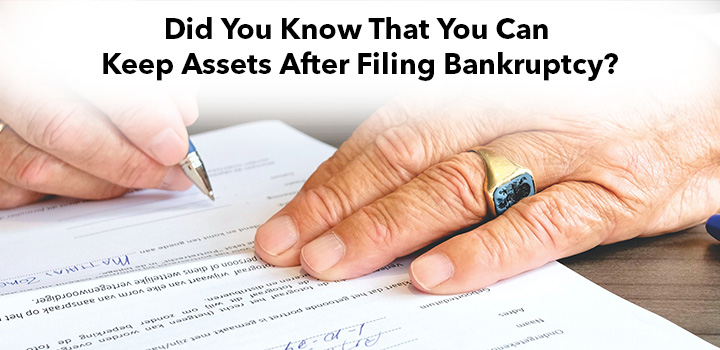
United States bankruptcy law isn’t designed to leave petitioners in a worse position than when they sought relief. This would only perpetuate further financial struggles and bankruptcy. Instead, filing for bankruptcy is often the first step in achieving financial freedom. Only one type of bankruptcy, Chapter 7, actually forces the liquidation and distribution of your non-exempt assets. Arizona’s asset exemptions, however, protect your most personal possessions and leave families with the resources necessary to start again. There are also various types of bankruptcy, such as Chapter 13 and Chapter 11, that allow petitioners to keep all of their assets by restructuring their debts and developing affordable payment plans.
Protect Your Assets & Explore Your Debt Relief Options with an Experienced Tucson Bankruptcy Attorney
There is no “one size fits all” approach to bankruptcy and debt relief in Arizona. At the Yusufov Law Firm, experienced Tucson, Mesa, and Phoenix bankruptcy attorney German Yusufov considers every client’s personal, professional, and financial concerns before developing a unique debt relief and asset protection strategy. Call him today at (520) 745-4429 or contact him online for your free, comprehensive Arizona bankruptcy and asset protection consultation.
Keeping your Assets by Restructuring your Debt with Chapter 13 Bankruptcy
Many Tucson residents see bankruptcy as a “fire sale” of their lives, but this simply isn’t true. Individuals and businesses with steady income and less than a certain amount of debt often qualify for something called Chapter 13 bankruptcy. Filing for bankruptcy under Chapter 13 not only stops all debt collection efforts, foreclosures, and pending litigation, it allows you to keep all of your assets. Instead of gathering and liquidating (selling) your non-exempt assets to pay your debts, the bankruptcy court assesses your income, debts, and expenses and restructures your debt into an affordable payment plan. The petitioner makes a single consolidated payment each month over a period of 3 to 5 years, and most debt remaining after successful completion of the payment plan is subject to discharge (forgiven).
In order to qualify for Chapter 13 bankruptcy, you must meet the following criteria:
- Have less than $394,725 in unsecured debts (credit cards, personal loans, student loans) . This amount changes every 3 years.
- Have less than $1,184,200 in secured debts (home, vehicle). This amount also changes every 3 years.
- Have a steady income sufficient to cover expenses and make modified debt payments
Petitioners who successfully complete their payment plan retain all of their personal and business assets, including their home, during and after bankruptcy proceedings.
Understanding Arizona’s Asset Exemptions During Chapter 7 Liquidation
Petitioners who don’t qualify for Chapter 13 bankruptcy may have to file for Chapter 7 liquidation. As the name suggests, this type of bankruptcy requires the bankruptcy trustee to gather and liquidate (sell) all of the petitioner’s non-exempt assets, including community property held by spouses. These assets include:
- Checking and savings accounts
- Stocks and bonds
- Vehicles
- Intellectual property such as copyrights, trademarks, and patents
- Real Property (home, farm, land)
- Furniture
- Jewelry
- Farm animals
- Collectables
- Clothing
- Art
Arizona bankruptcy law provides for certain exemptions, i.e., property that is not subject to liquidation. Even during Chapter 7 bankruptcy, you can keep the following assets:
- Up to $150,000 in equity in the home where the debtor actually resides (this excludes second homes, vacation homes, and business property)
- Up to $6,000 in equity in one vehicle
- Personal property, including electronic devices, furniture, and appliances, with a combined market value of up to $6,000 for individuals and $12,000 for married couples
- Up to $300 in one bank account
- Sixth months worth of food and fuel provisions for your family
- Up to $500 worth of clothing
- Up to $400 worth of musical instruments
- Domestic pets
- Engagement and wedding rings worth up to $2,000
- Necessary prosthetics and medical supplies
- Certain exempt income (child support, pensions, and/or social security)
- Up to $5,000 in tools and instruments needed for a business or trade, including websites and telephone numbers
This is not an exhaustive list of exemptions in Arizona, but it provides an overview of the assets you can keep even after declaring bankruptcy. An asset worth less than the exemption amount will not be liquidated, e.g., an old Toyota worth $4,000, and you can keep the property. Assets exceeding the allotted exemption amount, e.g., an engagement ring worth $15,000, will be sold, and the exempt revenue remitted to the debtor. For example, an engagement ring sold for $12,000 will result in $10,000 being used to pay debts and $2,000 being returned to the debtor.
Debt Relief and Settlement Alternatives to Protect your Assets During Bankruptcy
It is illegal to hide, sell, or transfer assets during Chapter 7 bankruptcy in order to avoid their liquidation. While there are ways to save certain assets during bankruptcy, petitioners concerned about losing certain assets should consider alternatives to Chapter 7 bankruptcy. Such alternatives include retaining an experienced Arizona debt relief lawyer to negotiate payment plans and/or reduced payoffs with creditors, challenging or disputing bad or illegal debts, or filing for Chapter 13 bankruptcy. An experienced bankruptcy attorney can employ the appropriate tactics for your situation to reduce debt, stop creditor harassment, protect your credit, and avoid asset liquidation.
The Right Experienced Tucson, Mesa, and Phoenix Bankruptcy Lawyer to Protect Your Assets
The right bankruptcy lawyer always considers his client’s present and future needs when recommending a debt relief plan. Most bankruptcy petitioners can keep their assets and start fresh with the help of an experienced debt relief attorney at Yusufov Law Firm. Schedule your free, no-risk asset protection and bankruptcy consultation with Tucson bankruptcy lawyer German Yusufov today by calling (520) 745-4429 or contacting him online.

